

The Healing Foundation’s Stolen Generations Resource Kit for Educators and Children has been created to educate young people about the Stolen Generations. It makes it easy for the community to start the conversation and inform discussions using facts, real examples and stories.
Writing observations for babies and young children enables us to observe the countless opportunities for growth and development that take place. The following article provides information on Writing Observations For Babies, What To Observe, Sample Observation For A Baby, Methods For Documenting and more.
The Early Years Learning Framework outlines Intentional Teaching as one of the major practice guidelines to promote children’s learning. Intentional teaching involves actively planning and acting with specific goals or outcomes for children’s learning in mind. The following provides information on Intentional Teaching Definition, Intentional Teaching Strategies, Intentional Teaching Examples and Benefits Of Intentional Teaching.
Active Listening involves lending your undivided attention to someone who is speaking to you. As opposed to passive listening which is merely hearing the speaker without trying to understand what is being said, active listening leads to more effective communication, learning and problem-solving. The article provides information on What Active Listening Is, Active Listening Definition, Active Listening Skills Examples and more.
There may be times when despite giving your best, your service might have to face complaints. However, instead of getting demotivated, it is possible to use complaints as opportunities for critical reflection. The following article provides information on Complaints Management, Positive Approaches To Complaints, Effective Complaints Management systems, Identifying Areas Of Improvement, Effective Documentation and more.
As an Early Childhood Educator, it enables you to acknowledge and embrace conversations around disability and inclusion with children. The following article provides strategies to discuss inclusion and disability with children.
The Early Years Learning Framework identifies that positive attitudes and competencies in literacy and numeracy are important aspects
of communication and are vital for children’s successful learning. The indicators have been developed to support teachers to extend and enrich every preschool child’s numeracy and literacy learning. The following article provides information on What Are The Indicators, the Importance of The Indicators, Learning Processes, Numeracy and Literacy Indicators and more.
If your service is to ensure the best outcomes for children in your care, it is imperative that your educators and other staff work together as a team. One of the most enjoyable ways to foster team motivation is with games. Here are a few fun-filled team-building exercises to try at your next team-building session.
Motivating well-qualified staff to remain at your service is not only important to cut down training costs but also to provide the best outcomes for children. The following article provides strategies on how to retain staff within your early childhood service.
Mentoring is a hugely beneficial way for early childhood services to build the professional capacities of new educators as well as leadership capacities for their own organization. However, the success of a mentoring programme depends to a large extent on the efficacy of mentors. The following article provides strategies such as the Roles and Responsibilities, Who Can Be A Mentor and Requirements Of An Effective Mentor in an early childhood setting.
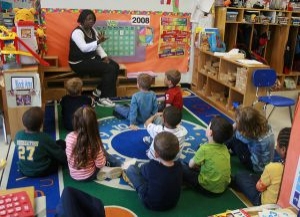 Working as a childcare professional can be a challenge especially when dealing with behavioural problems which may arise. The techniques we use when dealing with… Read More
Working as a childcare professional can be a challenge especially when dealing with behavioural problems which may arise. The techniques we use when dealing with… Read More
 There are different types of behaviour that children can display and sometimes it can be hard to manage, especially if a child is having behavioural… Read More
There are different types of behaviour that children can display and sometimes it can be hard to manage, especially if a child is having behavioural… Read More
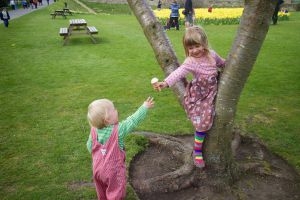 As a parent, your behavioural expectations of your child can be higher than what is actually developmentally appropriate for your child's age.
Read More
As a parent, your behavioural expectations of your child can be higher than what is actually developmentally appropriate for your child's age.
Read More
 As Educators, there will be many instances where you will need to write about a child's behaviour. For a behaviour management plan, assessments, half-yearly or… Read More
As Educators, there will be many instances where you will need to write about a child's behaviour. For a behaviour management plan, assessments, half-yearly or… Read More
 As Educators when communicating with Parents (through verbal or non-verbal communication), there will be times where we need to discuss issues or concerns that may… Read More
As Educators when communicating with Parents (through verbal or non-verbal communication), there will be times where we need to discuss issues or concerns that may… Read More
 Challenging Behaviour is when a child does something that hurts themselves and/or other people.
Read More
Challenging Behaviour is when a child does something that hurts themselves and/or other people.
Read More
 As part of your child's development it is normal for your child to have anxiety and fears. A baby commonly shows a fearful sign to… Read More
As part of your child's development it is normal for your child to have anxiety and fears. A baby commonly shows a fearful sign to… Read More
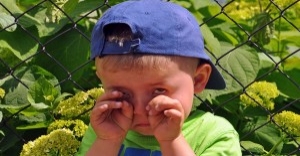 It's always difficult to bring up behavioural issues with parents, it can be nerve wrecking to tell a parent that their child misbehaves but that… Read More
It's always difficult to bring up behavioural issues with parents, it can be nerve wrecking to tell a parent that their child misbehaves but that… Read More
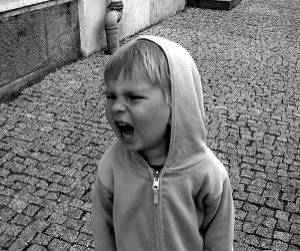 All children deal with anger on a daily basis. Thinking about it as a child, there is a lot to be angry about. Elder people… Read More
All children deal with anger on a daily basis. Thinking about it as a child, there is a lot to be angry about. Elder people… Read More
 It is important to understand that your child behaviour problems could not just be from attention seeking. There are many factors to take into consideration… Read More
It is important to understand that your child behaviour problems could not just be from attention seeking. There are many factors to take into consideration… Read More
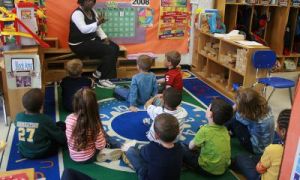
Working as a childcare professional can be a challenge especially when dealing with behavioural problems...
See more...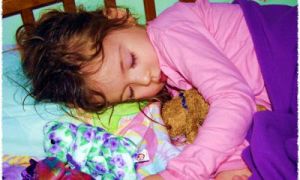
Now that your baby is older, they play a much more active part in their...
See more...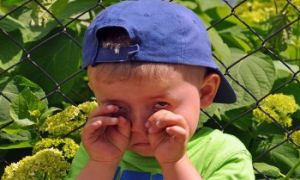
It's always difficult to bring up behavioural issues with parents, it can be nerve wrecking...
See more...© 2009-2025 Aussie Childcare Network Pty Ltd. All Rights Reserved.

